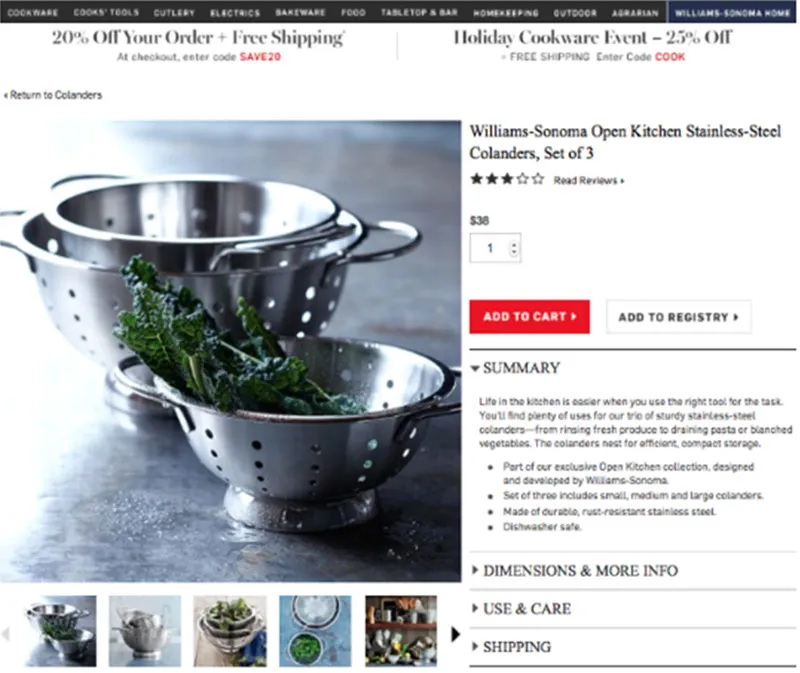Four marketing strategies most Indian online retailers are missing out on
Smart online retailers have a lot on their minds these days, whether it is how to personalise the shopping experience for each user, how to improve the search functionality on their site to make it faster and more precise, or how to optimise the structure of their website. Forgetting few things is easy. But, if you want to make your online store profitable, you should be mindful of things that can cost your business if you omit them.
Here are four such things Indian retailers are missing out from their marketing strategies. Let's take a look.

- A retention-focused strategy
Most online retailers in India are investing a lot on customer acquisition. They think more traffic equals more sales.
They invest a lot on social media marketing to grab more eyeballs and spend huge bucks on PPC ads to establish their brand in search results. But when it comes to retention, they forget to pay any attention. As an e-commerce marketer, if you're not focusing on retention, you're only doing half your job and can expect only half the results.
Check out these stats:
- The probability of selling to an existing customer is 60 – 70 per cent while the probability of selling to a new prospect is only five to 20 per cent.
- A five per cent reduction in customer defection rate can increase profits by five to 95 per cent.
- It costs six to seven times more to acquire a new customer than in retaining an existing one.
If you're unsure where to start, begin with retention emails in your email marketing. An email is a great tool for customer retention. But when using it for retention, you'll need a shift in the way you think about it i.e. instead of just sending promotional emails all the time, focus on building a close relationship with your customers. Sending retention emails will not just help you reduce your churn but will also keep your customers happy.
- Good product descriptions
One reason shoppers leave your site after landing on product pages is the lack of proper product description. Most web stores simply describe the details of an item by giving few technical specifications and by uploading a couple of mediocre pictures.
Your product copy has a huge impact on your sales. It's the only way by which you can describe and give your shoppers a virtual experience of your product (how it feels, how it works etc.). Product descriptions should be persuasive and compelling to help you drive more sales.
Product descriptions, when done well, will not only help you convert more customers, but they can play a big role in attracting more people to your site too. How? Well-written product descriptions will rank better in search engines and will boost your product search engine visibility.
Given below is an example of a good product description:

Bonus tip: Boost your visibility efforts by adding relevant keywords to your product description.
- Email nurturing
Many online retailers fall into the trap of going right for the sale every time someone subscribes to their email list. They fail to realise subscribers are not always ready to make a purchase the moment they sign up for your email list.
Sometimes, they are only researching about the product they intend to buy (especially if they're high-value items). If you’re ignoring the intent of these shoppers and targeting them with sales messages every time you have their attention, I think you’re missing out.
By targeting them according to their intent, you can gear them up for purchase down the road without looking salesy at all.
- Willingness to experiment

Most marketers in India lack a desire to experiment. They believe in following tried and tested approaches that have successfully worked for others. But every business is different; if someone else has implemented a programme successfully, that doesn't mean you can easily follow in their footsteps. The key is to customise it according to your site and audience. For example, if a case study says that someone has increased their conversion ten times by changing their CTA color to red or have increased their email open rates seven times just by adding a particular word in their subject line, then instead of implementing that blindly, you need to A/B test what will work with your audience. Only if you’re willing to experiment, you can make a few tweaks and get the desired results.
And don't forget to measure the results.
That said, some campaigns might perform miserably for your site, no matter how much you experiment with them. The trick is learning to identify and having the confidence and willingness to experiment.
These are some of the common mistakes that can affect your bottom line. If you are making any of these mistakes, it is high time you correct them.
(Disclaimer: The views and opinions expressed in this article are those of the author and do not necessarily reflect the views of YourStory.)







